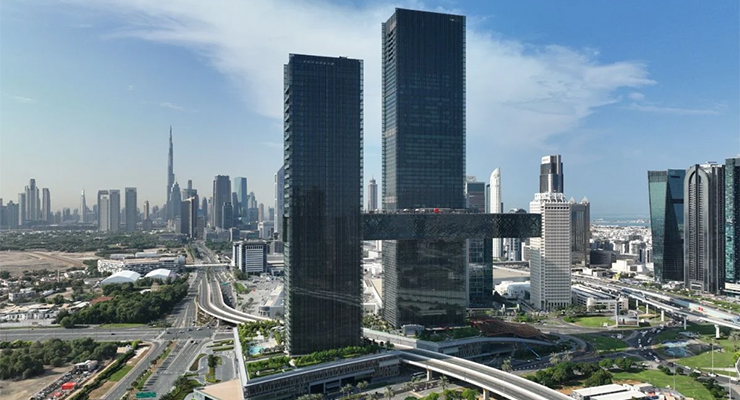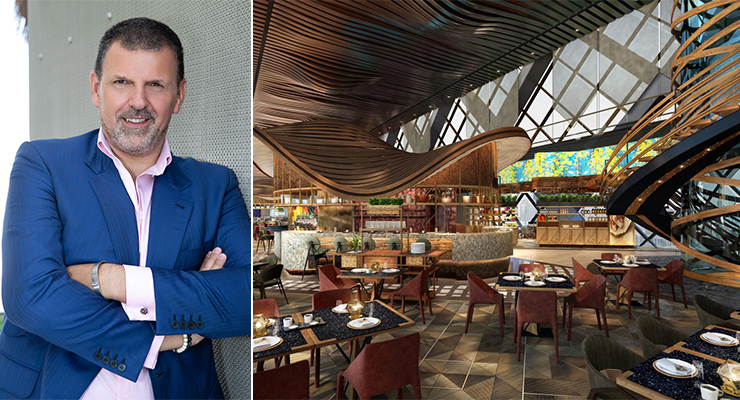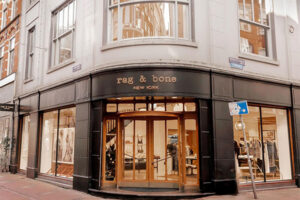By Will Odwarka
Gone are the days when hotel restaurants were only seen as convenient dining options. They were often run by the hotels themselves and were not branded restaurants, but often huge buffets. Inspiring was not necessarily the first thought that came to mind.
With the rise of foodie culture and the demand for unique culinary experiences, hotels are now following suit and offering a wide range of dining options to suit different tastes and preferences. From fine dining restaurants run by Michelin-starred chefs to trendy casual restaurants serving Instagram-worthy dishes, hotels around the world are redefining the gastronomic landscapes at their properties.
One of the key trends we are currently seeing in the hotel restaurant scene is an increased focus on high-end dining. More and more hotels are partnering with renowned chefs and culinary experts to create high-end restaurants that can compete with independent restaurants in terms of quality and creativity.
These culinary options not only showcase the skills and talents of the chefs, but also offer guests a touch of luxury and sophistication right on the hotel premises.
At the other end of the spectrum, we are seeing a rise in casual dining options within hotels. From trendy cafés and hip bistros to laid-back lounges and rooftop bars, hotels are embracing the casual dining trend and creating spaces in which guests can unwind, socialize, and enjoy delicious food and drinks in a relaxed setting. These casual dining options offer guests laidback and informal atmospheres in which they can let their hair down and savor the flavors of the local cuisine in a more casual setting.
One amazing example can be found at the One&Only One Zabeel Hotel in Dubai with its stunning floating boulevard “The Link” suspended 100 meters above the ground, the longest cantilever in the world and a range of breathtaking culinary options – from street bistros to upscale Thai cuisine and an ultra-modern food hall. There is also a 130-meter-long pool, which is flanked by an exceptional Japanese/tapas concept. All of that happened shortly after the opening of the globally acclaimed, iconic Kerzner landmark Atlantis – The Royal, with its 17 restaurants (you read that right). Dubai has truly cemented its status as one of the most important tourism hubs in the world, boasting an ever-growing local culinary scene and countless celebrity chefs from around the world.

Spotlight On Retail
While I am obviously writing about F&B, we must not forget the retail environment at hotels or, more importantly, hotels within the retail environment. The travel and tourism industry is a multi-trillion-dollar business, and retailers naturally want a bigger slice of the pie. The integration of retail into the hotel industry is a growing trend. Hotels with a strong retail offering have seen an increase in revenue. Research shows that hotel guests are more likely to return to a hotel if they had a positive retail experience during their stay. This shift towards a more integrated retail and hospitality environment is being driven by the desire for a more holistic and immersive guest experience.
When reading my columns, you may have noticed a common thread. I talk about community, excitement, experience, and multi-sensory memorable moments that bring you back to a place – not just to a restaurant, but to any place. Much like the F&B industry, retail has evolved far beyond places to shop, and hotels are no longer just places to sleep.
Hotel guests around the world demand the same seamless experience that they have come to expect from retail: loyalty, technology, automated interaction, and respectful handling of their time in terms of booking, check-in, and more. Hotels are now partnering with well-known retailers to create unique and innovative spaces that offer guests an unparalleled experience. Luxury hotels, especially in the US, show the most growth in retail revenue. This general trend is even more pronounced in international markets, with hotels in Dubai, Bangkok, and New York leading the way when it comes to creating iconic retail spaces within their properties.
The success of this integration is reflected in the increase in footfall and revenue for hotels that have embraced the retail trend. Guests are no longer satisfied with just a comfortable room and good service. They want an experience that appeals to all of their senses and leaves a lasting impression. By incorporating retail into their offerings, hotels can provide their guests with truly immersive and unique experiences that go beyond traditional hospitality.
Retailers around the world have become more creative, introducing their beloved brands at hotels, and players within the hospitality industry have become integrated elements of the retail environment. William-Sonoma, a furniture and home accessories retailer, went for broke, which seems to have worked out well. Sheraton and Address in Dubai, Westin in Bangkok, Plaza and Drake in New York, and many more have become icons of the perfect fusion of retail and hospitality.
In other words, the hotel landscape is changing on a global scale as hotels seek to attract and cater to a more diverse and international clientele with their F&B and retail offerings. As travel becomes more accessible and global, hotels are incorporating a variety of international cuisines and retail brands into their offerings. Blending traditional Italian trattorias and authentic Japanese sushi bars, modern French bistros and fusion restaurants within a setting of popular retail brands creates the perfect environment
for a multi-sensory experience.
This international approach to hotels not only reflects the changing tastes and preferences of modern travelers, but it also adds a layer of cultural authenticity and diversity to the overall guest experience. By offering a taste of different culinary traditions and flavors, hotels are able to create a more immersive and enriching dining and, potentially, retail experience for their guests, allowing them to sample and savor the best of global cuisine without ever leaving the hotel premises.
In conclusion, the hotel landscape is evolving rapidly, with hotels around the world embracing fine dining trends and casual dining options to cater to the diverse tastes and preferences of modern travelers – and flanking it with retail. From high-end gastronomic experiences to laidback casual eateries, hotels are redefining the dining scene within their properties and creating unique culinary destinations for guests to enjoy, while simultaneously connecting them to the retail world.
With an international perspective and a focus on quality, creativity, and authenticity, hotels are setting new standards for dining excellence and raising the bar for the entire guest experience within the hotel industry. So, the next time you check into a hotel, be sure to explore the culinary options – you might just discover a hidden culinary gem that will surprise and delight your taste buds.






